The introduction to Constructive Psychology or The Building Of Character By Personal Effort by J D Buck a masonic author
The seething and noisy human mass rush to opposing standards and yell themselves hoarse, forgetting in the frenzy of contagious enthusiasm how they have been grouped and whipped into line by their trainers and middlemen who held them like sheep with the dogs of party strife and political expediency, and the epidemic at Chicago is only equalled by the cyclone at Denver.
Back of these political champions stand the captains of industry, and the autocrats of wealth, with one eye on their millions grabbed from natural resources and the impotency or helplessness of the hungry toiling masses, and watching the throw of a card or the trend of events, in order to grab again from the human hopper in the mills of the gods of chance.
Beneath all this surface turmoil there may be distinctly heard an undertone, a rumble as of distant thunder, with here and there a flash from a distant cloud.
It is the cry, the groan, the unrest of the toiling masses, resentful at the inequality and injustice that everywhere oppress them. They are determined to die rather than submit.
They are not counted in the race, but the champions on either side undertake to conciliate, and in so doing yield just so much as may serve to keep them quiet and expectant of better conditions, and enable them to choose the least of two evils, well knowing that justice is not considered, but only expediency, in order that the few may still dominate the many, and wealth and power and privilege still hold place.
From time immemorial this has been the history of statecraft, priestcraft, politics. But never before in the history of man has enlightenment, education and intelligence, with the resulting spirit of Liberty and the demand for common Justice, been so generally diffused among the toiling masses as in the United States today.
The masses have always held the balance of power, but they did not realize it.
If they undertook to co-operate and use their power, statecraft, prince-craft or priestcraft contrived to throw an apple of discord into their midst, dividing them into hostile factions or fanatical partisans, and while they were destroying each other the autocrat retired to smoke his pipe of peace in safety.
Socialism, however defined, means today that the masses are drawing nearer together, waking from the lethargy and dumb sleep of ages, and beginning to hold together and to sense the principle and the necessity of co-operation and solidarity.
They are getting ready to make common cause against all their oppressors.
They need only the nucleus in order to crystallize the idea, or a Peter the Hermit to rouse them to enthusiasm or fanaticism that will sweep away all opposition.
To call these natural instincts and this innate sense of common justice “Anarchy” only helps their cause.
The effort to label the demand for a square deal and fair play “Indecent,” as is done in the cowardly and contemptible “Penrose Bill,” sneaked in under cover of an “appropriation” near the close of the last Congress, can have but one effect, viz. : of deepening the sense of injustice and multiplying resentment on every hand, and only hastening the day of deliverance or retribution.
The politicians doubtless think they “turned a clever trick.” If there were statesmen in the last Congress, and certainly there were some, they well knew that Nemesis is tacked on to the Penrose Bill, as the Bill itself was tacked on to an “appropriation.”
They dare not do openly what they seek to do by fraud and trickery, and the head of the Post Office Department will scarcely avoid responsibility by committing the execution of the “Law” to the passion, caprice or partisanship of the local postmaster.
They all fail to take into account the increased intelligence of the masses, as a whole.
Passing from these surface indications and open public issues to the status of the individual, the units that compose the mass, Constructive Psychology may do for the individual what Socialism in its strictest constructive sense and most scientific and philosophical form may do for the masses.
It will enable them to apprehend and utilize their inherent faculties, capacities and powers and so to make the best of their opportunities as intelligent, rational and free men and women.
The evolution of the individual and the constructive solidarity of society are inseparable.
It is important, above all things, to find the lines of least resistance, greatest progress and permanent results.
No new theory is herein proposed. A different grouping of facts, the pointing out of things already familiar, with their natural sequence and co-ordinate relations, is all that is in any sense new, or herein attempted.
What co-operation and fraternal consideration will do for any group of individuals in securing the highest good to all concerned, Constructive Psychology will do for each individual through the recognition of his own resources and by enabling him to utilize them so as to secure the highest and best results, both for himself and for any community of which he is a part.
In other words, Constructive Sociology and Constructive Psychology are one.
The building of individual character and the upbuilding of society in the highest and best sense are inseparable.
These basic principles are not abstruse and difficult to understand, though they go to the foundation of things and compass all life.
Like the laws of physical health, they are few and simple ; or, like the principles of mathematics, concise and definite.
True, they are hedged about by the speculations and the guesswork of ages, and the ground pre-empted by “squatter sovereigns” of every age, nation, kindred and tongue, the dogmatists in religions having the largest paw and the strongest grip, while superstition and fear of the unseen and unknown serve as a bugaboo to prevent the children of men from peacefully claiming and using their Natural and Divine heritage.
If anyone attempts to do this, he is met at the border of the domain of thought with a sign of warning, or a patent of pre-emption; and if he steps over the fence he is served with a writ of ejectment, with the air full of muttered warnings and maledictions.
Strenuous indeed must be the struggle of the soul for liberty and enlightenment, when the intellectual and spiritual domain, like the broad acres of the earth, are owned by someone else.
“The foxes have holes, and the birds of the air have nests, but the Son of Man hath not where to lay his head.”
The war between radicalism and conservatism is like that between the two great contending political parties in America to-day.
The guns of each party are turned against the other, while Truth and Justice sit enthroned serenely above them and above the din of battle.
Each of these parties or factions claims too much, and denies too much.
Repose dwells on the mountain tops above the mists and miasmas of the dark valleys. Here the soul, at peace with itself, may commune with the silence and find Divinity smiling through the starry hosts.
The complexity of human nature and the diversity of human interests and pursuits are indeed perplexing and often bewildering.
Civilization endowed with intelligence, like the present, carries with it the records of the past, the lessons of history and a very labyrinth of conjecture, theory and experiment.
Meantime, “things settled by long use, if not absolutely good, at least fit well together.”
But today it is the custom to challenge all these things, to overturn and attempt to rebuild. In every department of knowledge these signs are manifest.
Constructive Psychology turns the thoughtful and intelligent individual back upon himself and undertakes to make exceeding plain those few simple principles by which he may adjust himself by personal effort and establish harmonious relations to God to Nature and to his fellowmen.
He will find no necessity for consulting libraries, philosophies, authorities, or theologies, helpful as these may be at certain times or under certain circumstances.
He will appeal solely to his own intelligence, his own conscience and his own experience. This is the only source for him of actual knowledge.
He knows only that which he has learned by definite, personal experience.
He is not to be indoctrinated, converted, or exploited. He is to undergo continual transformation.
He himself must become ‘‘the builder of the temple,” thrown upon his own resources, and by personal effort must create his own heaven or his own hell, with the distinct understanding and unalterable decree, that he must live in the house he builds and keep it in constant repair by eternal vigilance and unremitting personal effort.
Eternal vigilance is indeed the price of liberty. Every human being is a slave till he has mastered himself. When he has achieved this conquest, he is for the first time Freeborn. Henceforth no power in the three worlds can ever enslave him without his assent.
Eternal vigilance is indeed the price of liberty. Every human being is a slave till he has mastered himself.
When he has achieved this conquest, he is for the first time Freeborn. Henceforth no power in the three worlds can ever enslave him without his assent.
Such building of character means work. It has to have a beginning, and the only possible initiative is when the individual determines to begin now!
With his first real step in advance, the “Demons of the Threshold” — superstition and fear — recede, and at last die.
There will always be those who will deny man’s right to this God-given privilege, this natural heritage, just as there will always be those ready to degrade the sacred name of Liberty to license.
Every real seeker will hold to the middle of the road undisturbed by the warnings or the menace from either side, though he will be just to all.
– J D Buck, 1908
Article by: J D Buck
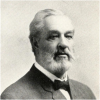
Dr. Jirah Dewey Buck (1838 - 1916) was an American homeopath, naturopath, theosophist.
He was professor of physiology and microscopy at Cleveland Homeopathic College in 1866–1871.
From 1880, he was professor of physiology at Pulte Medical College. In 1882, he was elected dean and professor of theory and practice of medicine.
He became President of the American Institute of Homeopathy in 1890.
Buck was a freemason and was vice-President of the Theosophical Society of America and vice-president of the Cincinnati Literary Club and the American Section of the international Theosophical Society in 1886.

Constructive Psychology Or the Building of Character by Personal Effort
By: J D Buck
This book is a reproduction of an important historical work. Forgotten Books uses state-of-the-art technology to digitally reconstruct the work, preserving the original format whilst repairing imperfections present in the aged copy.
In rare cases, an imperfection in the original, such as a blemish or missing page, may be replicated in our edition.
We do, however, repair the vast majority of imperfections successfully; any imperfections that remain are intentionally left to preserve the state of such historical works.
Recent Articles: in this series
 Book Intro: The Secret Doctrine Explore the profound synthesis of science, religion, and philosophy in H.P. Blavatsky's "The Secret Doctrine." Discover the true depth of Theosophy beyond the oversimplified term "Esoteric Buddhism" and uncover the universal wisdom that transcends religious boundaries. A compelling introduction to Theosophical literature and its broader, esoteric truths. |
 Book Intro - The craftsman and freemason's guide Dive into the enigmatic world of Freemasonry with Cornelius Moore's comprehensive guide. Uncover the symbolic rituals, trace the fraternity's historical roots, and gain a deeper understanding of this age-old society. Perfect for Freemasons and curious readers alike. Unlock the secrets of Freemasonry today! |
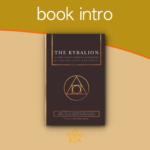 Unravel the secrets of the ancient Egyptian wisdom with our comprehensive guide to the Kybalion, by Three Initiates. Discover its influence on modern thought, the controversies surrounding it, and its seven profound Hermetic principles. Unlock the power of these timeless teachings to transform your understanding of life's mysteries. |
 Book Intro - The Working Tools of an Old York Master by Wilmshurst Unlock the Secrets of Freemasonry! Dive into the profound symbolism of 'The Working Tools of an Old York Master.' Discover the hidden meanings behind the square, compass, plumb line, and more. Embark on a transformative journey of personal growth and spiritual enlightenment. Uncover the ancient wisdom that has shaped generations of Masons. |
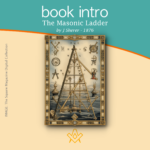 Book Intro - The Masonic Ladder by J Sherer Unlock the mysteries of Freemasonry with "The Masonic Ladder" by J. Sherer - - 1876. This 19th-century guidebook takes readers on a journey through the steps of the Masonic ladder, from the basic principles of the Entered Apprentice to the highest degree of the Sovereign Grand Inspector General. Discover the symbolism, allegory, and values of Freemasonry in this timeless classic. |
 Book Intro - The London mason in the seventeenth century The London Mason in the Seventeenth Century by Douglas Knoop offers a comprehensive examination of the lives and work of masons in the bustling city of London during the seventeenth century. The book delves into the intricacies of their craft, the socioeconomic and political forces that influenced their profession, and the role they played in shaping the architectural landscape of London. |
 Book Intro - History of Freemasonry, Gould, Robert Freke The History of Freemasonry is a comprehensive overview of the origins, development, and evolution of Freemasonry from its ancient roots to the modern era. The book explores the fascinating history of one of the oldest and most mysterious organisations in the world, which has been the subject of much speculation and curiosity over the centuries. - by Robert Freke Gould |
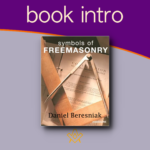 Book Intro - Daniel Beresniak Symbols Of Freemasonry This book is a collection of the symbolic images which Freemasons encounter on their journeys of transformation.' The texts and illustrations form an intimate dialogue whose subject is Freemasonry, and which casts light on the relationship between dreams and reality, reason, intuition and imagination. |
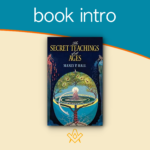 Book Intro - The Secret Teachings of All Ages by Manly P Hall The Secret Teachings of All Ages by Manly P Hall is a comprehensive and in-depth exploration of the various esoteric and occult traditions that have shaped human history. The book covers a wide range of subjects including alchemy, astrology, mysticism, and secret societies, and provides detailed explanations of the underlying principles and concepts. |
 Book Intro - Duncan's Masonic Ritual and Monitor Duncan's Masonic Ritual and Monitor is an impression of the Old York Rite published in New York in 1866. |
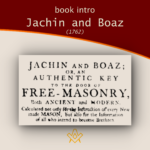 Book Intro - Jachin and Boaz (1762) Thirty two years after Samuel Prichard's Masonry Dissected (1730) a second detailed exposure was published Jachin and Boaz (1762) attributed to the same author, and met with equal distain by Freemasons of the time. However, these exposures offer the masonic historian an invaluable view in to how freemasonry was conducted during its early formation |
 Book Intro - Three Distinct Knocks (c.1760) Giving an exact account of all their proceedings in making a brother, with the three obligations or oaths belonging to the first second, and third degrees of masonry, viz. The entered apprentice, fellow-craft, and master-mason: with the obligating on belonging to the chair, and the grip and word. |
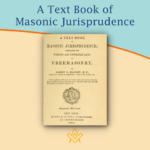 Book Intro - A Text Book of Masonic Jurisprudence An introduction to Albert Mackey's seminal work on Masonic Jurisprudence – the theory or philosophy of Masonic law. The Foundations of Masonic Law are to be found in the Landmarks, or Unwritten Law, and in the Ancient Constitutions, or the Written Law. These constitute the subject matter of the book. |
 Book Intro - The Perfect Ceremonies Of Craft Masonry 1871 A beautiful example of a the rituals, produced in a Medieval illuminated script style. Facsimiles still exist of this illustrated ritual book, of which the most authentically produced version is that available from the Scottish Rite Masonic Book Club. |
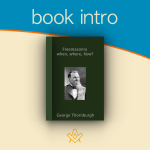 Book Intro – Freemasonry; when, where, how? Introduction to Freemasonry; when, where, how? By George Thornburgh |
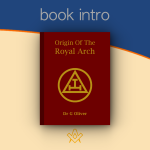 Book Intro - Origin Of The Royal Arch An introduction to the Origin of the Royal Arch, through the eyes of the English nineteenth century masonic author Dr G Oliver (1782–1867) |
 Book Intro – Symbolical Masonry Symbolical Masonry is a treasure-house of Masonic lore, including discussions of key concepts of the first three degrees, along with an extensive study guide. |
 This month we look at – 'A portrait gallery, with biographical sketches of prominent freemasons throughout the United States' |
 Extracted and abridged from The Mystic Tie: Or, Facts and Opinions, Illustrative of the Character and Tendency of Freemasonry By Albert Mackey, |
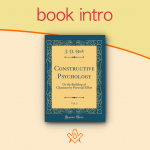 Book intro - Constructive Psychology The introduction to Constructive Psychology or The Building Of Character By Personal Effort by J D Buck a masonic author |
 book intro - Cagliostro: the splendour and misery of a master of magic Preface to the book by William Rutherford Hayes; Cagliostro: the splendour and misery of a master of magic |
 book intro - Origin of the Rosicrucians and the Free-Masons Historico-Critical Inquiry into the Origin of the Rosicrucians and the Free-Masons – Thomas De Quincey |
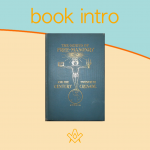 Book Intro - The Genius of Freemasonry The Genius of Freemasonry: “Has any brother anything to offer for the good of Masonry?” The following pages are the author’s answer to that question. |
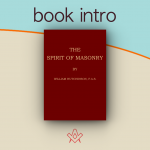 Book Intro - The Spirit of Masonry An essential source for anyone interested in exploring the inner mysteries of the Masonic Fraternity. |
 Book intro - History of Freemasonry Introduction to a classic masonic book by J. G. Findel, History of Freemasonry published 1866 |
 The Book of Constitutions for the Ancient Grand Lodge or Ahiman Rezon |
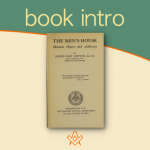 A short introduction to The Men's House, a collection of masonic papers and addresses |
 This is a general survey of Masonic origins, history and philosophy. It was at one time given to every new Mason in Iowa. |
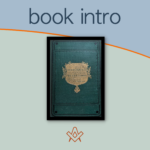 Book Intro - The Discrepancies of Freemasonry Written almost 150 years ago, this book contains wisdom still relevant today. |
 Book Intro - The Principles of Masonic Law "The first great duty, not only of every lodge, but of every Mason, is to see that the landmarks of the Order shall never be impaired". |
 Published in 1911, this fascinating book is equally relevant for the 21st century Mason with an interest in the more mystical side of Freemasonry. |
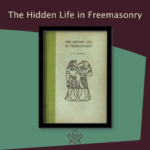 Book Intro - Hidden Life of Freemasonry Introduction to The Hidden Life in Freemasonry (1926) by Charles Webster Leadbeater |
 Book Intro - The Symbolism of Freemasonry Introduction to a classic masonic book; The Symbolism of Freemasonry: Illustrating and Explaining Its Science and Philosophy, its Legends, Myths and Symbols. |
 Book Intro - The Meaning of Masonry This is the Introduction to The Meaning of Masonry, a set of essays which discuss the esoteric side of Masonry |
 Book Intro - Illustrations of Masonry Introduction to Illustrations Of Masonry by William Preston (1742-1818) |
masonic knowledge
to be a better citizen of the world
share the square with two brothers

click image to open email app on mobile device






